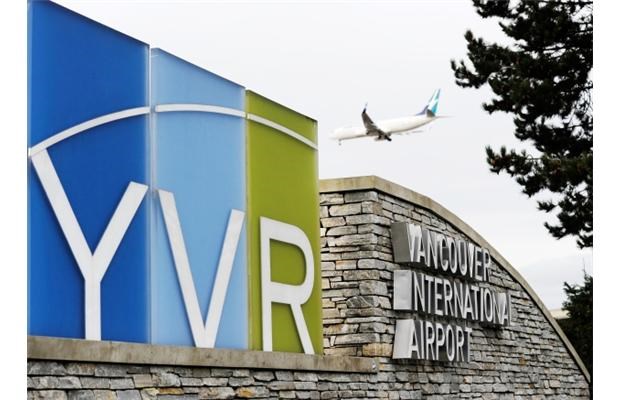Imagine losing $50 million. Vancouver Airport Authority (YVR) need not imagine after it backed out of a foreign investment that left it $50 million in the red.
The 2010 investment — through YVR's subsidiary Vantage Airport Group — in operating Liverpool's John Lennon Airport (LJLA) took a turn for the worse in a hurry after the airport reported a 20 per cent decline in passengers over the past four years.
The equity losses are compounded by the fact the money used by YVR for the initial investment in the Liverpool airport came from selling half of its control in Vantage in 2008 to Citi Infrastructure Investors (CII).
"Vancouver Airport Authority was faced with a difficult decision: invest further funds in a venture that has already lost a significant amount of equity, or exit the project altogether," said Craig Richmond, president and chief executive officer of YVR, in a news release.
Coincidently, Richmond is the former CEO of the Liverpool airport. He took control of operations at Vancouver last year.
Vantage sold the Liverpool airport back to the same company — Peel Group — that it bought it from in 2010. The price of the sell back was not disclosed but the initial 2010 sale was reported to be about $325 million Canadian.
According to the Liverpool Echo, LJLA recently reported an annual loss (in the year to March 2013) of about $13 million and that the airport was in "urgent talks" with bankers. The airport was reported to have total bank debts of $144 million.
"The accounts explain why LJLA is currently in breach of some of its borrowing covenants," reported the Echo.
Glenn McCoy, senior vice-president and chief financial officer of YVR, said the losses were a result of a sustained downturn in the economy, a difficult regulatory environment as well as a highly competitive market — which all resulted in what he called a "significant" drop in passengers.
McCoy said under Richmond's tutelage, the Liverpool airport, in fact, performed well in terms of operations such as guest services, on-time performance and non-aeronautical revenue. It was the competitive market in Europe that has had low-cost carriers fighting tooth and nail for recession-impacted customers that was the investment's ultimate demise, said McCoy.
McCoy said YVR sold half of its control to CII to benefit from the investment company's financial capital. The subsidiary is represented equally on its board of directors by members of the investment firm and the airport.
Vantage owned 65 per cent of the Liverpool airport. The 2010 purchase was made using equity as well as a debt package through two banks in the United Kingdom.
Out of the total loss of $49.7 million, $43.8 was a result in a loss of value (write-down) in the Liverpool airport.
When asked whose idea it was to invest in Liverpool Airport McCoy replied:
"Vantage made the investment and we (YVR and CII) both have equal representation."
Vantage has nine other airports located around the world, such as Cyprus, the Bahamas and Chile. It also operates two airports in B.C.: Fort St.John and Kamloops.
"We created Vantage 20 years ago to export our expertise to other airports," said McCoy.
McCoy said YVR has no plans to buy back full control of Vantage. He estimated the subsidiary to be worth "tens of millions of dollars" but couldn't speculate on what CII would value it at.
The announcement of the losses comes the same week YVR released its 2013 financial and operational statement and highlights.
Among the achievements reported was the fact YVR was recently ranked the best overall airport in North America in 2013 by Skytrax. It was also ranked the best airport in the world within its category size of 10-20 million passengers.
Last year the company narrowly bypassed its all-time record for passengers by having 17.97 million travellers pass through its iconic glass gates.
There was a record number of passengers to Asia Pacific, with traffic to the region up five per cent from 2012, including a 20 per cent jump in traffic to Mainland China alone.
In 2013 the airport's bank books got thicker after it reported a record $433 million in gross revenues as well a record $292 million in operating expenses. Airport Improvement Fees represented $122 million of the airport's revenues. Its lease, a bone of contention for YVR in competing with federally subsidized American airports, cost $42.3 million. Aside from the investment loss, all of the reported revenue and expense streams (concessions, parking, salaries, material costs etc.) showed small variations from 2012, according to the financial statement.
The airport reported net assets of $1.24 billion.
There are several infrastructure projects ongoing at the airport.
By spring 2016 the airport hopes to have completed 700 metres of moving walkways and secure corridors to improve connection times, which play a vital role in attracting more flights through Vancouver. Also, the airport hopes to have completed construction of a 35,000 square metre designer outlet mall near Templeton transit station by spring 2015. The mall could bring in extra revenue for the seemingly ever-growing airport
@WestcoastWood



